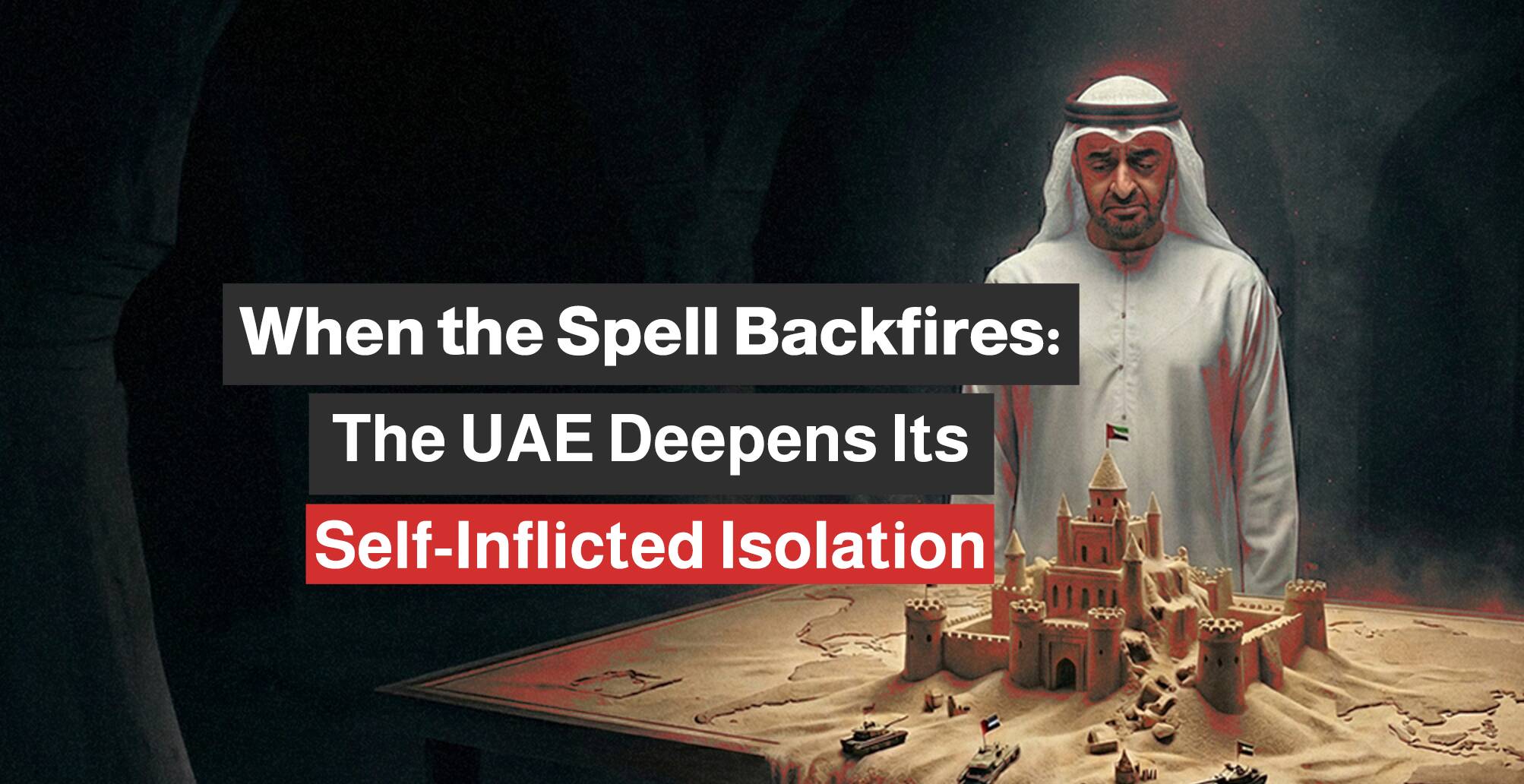The Fate of Russia’s Relations With ‘Israel’ at Stake

In the coming days, relations between "Israel" and Russia will become tenser after Russia has so far obstructed the travel of an official Israeli delegation to Moscow to resolve the issue of the Russian authorities warning the Jewish Agency for Israel operating on its territory to close due to violations of Russian domestic law.
Have things reached a point of no return between Russia and "Israel"? This question seems early, even if there is an escalation and a settlement. The differences between the two sides have become more acute, especially after the Russian invasion of Ukraine.
What is remarkable this time is that Moscow has not satisfied itself with reprimanding or imposing financial fines in response to the violations of the Russian law by the Jewish Agency, which has been continuing since the early part of the late first decade of the 21st century.
Rather, it referred the issue to the judiciary in preparation for the suspension of the Agency's activity unless the political level intervened to freeze judicial decisions and reach a kind of settlement.
On its part, Tel Aviv strongly condemned Moscow's intention to cease the Agency, which deals with immigration to 'Israel' and is the largest Jewish organization in the world, considering that this is a punitive measure in response to the new government's tough stance on the Russian invasion of Ukraine.
On July 25, 2022, the Jerusalem Post newspaper revealed that "other Jewish organizations operating in Russia had also received similar warnings from the Russian Ministry of Justice."
Political Revenge
Israeli media reported great tension between Russia and "Israel" against the backdrop of reports from Moscow that the Jewish Agency had ceased the work of the Jewish Agency, noting that this issue may be related to an earlier statement by Prime Minister Yair Lapid regarding the brutality of the Russian invasion of Ukraine.
On July 24, 2022, Israeli Prime Minister Yair Lapid warned that banning the Jewish Agency in Russia would represent a serious event that would affect relations between the two countries, calling on the Ministry of Foreign Affairs to draw up a list of possible responses against Russia.
Meanwhile, Israeli politicians questioned the efficacy of Lapid's hard line against Russia if it decided to stop the activities of the Jewish Agency.
They were also wary of Israeli steps that could escalate the crisis in the relationship with Russia and harm Israeli interests.
On its part, Russia accused "Israel" on July 26, 2022, of adopting an unconstructive approach and anti-Moscow statements since the Russian invasion of Ukraine, according to Russian Foreign Ministry spokeswoman Maria Zakharova.
"The issue is up to the Russian Ministry of Justice to decide on the fate of the Russian branch of the Jewish Agency," she said.
In turn, Kremlin spokesman Dmitry Peskov explained that "the ministry's move came after the agency violated Russian laws," denying the validity of speculations that Moscow is seeking to prevent the emigration of distinguished minds from Russia to "Israel."
On July 15, the Russian Ministry of Justice filed a complaint with the Moscow Court against the Jewish Agency for Israel, demanding the suspension and exclusion of the Jewish Agency from the Unified State Register of Legal Entities of the Independent Non-Profit Organization.
The Israeli Integration Ministry says that nearly 17,000 people have left Russia for "Israel" this year so far, which is three times the number recorded last year, and another 34,000 have arrived as tourists.
The Jewish Agency, which was established in 1929, is concerned with regulating the immigration of persons of Jewish origin to "Israel."
It began its activities in Russia in 1989, two years before the fall of the Soviet Union. After its fall, hundreds of thousands of Jews from all over the former Soviet Union arrived in "Israel."
"Israel" has more than one million people of origin from the former Soviet Union, and there are more than 600,000 Jews living in Russia.

Russian–Israeli Tension
Tensions in relations between Russia and "Israel" have begun to escalate since the Russian invasion of Ukraine on February 24, 2022, in addition to the pending files and issues between the two countries, some of which are undeclared and the other taking place in the corridors of the courts.
On its part, the Maariv website pointed out on July 25, 2022, that "the Russian authorities' procrastination in allowing the Israeli delegation to travel to Russia is causing concern among the Israeli government, despite the harsh Israeli tone of the consequences of closing the Jewish Agency branch in Russia."
According to Israeli media, although the Russian judicial warning to the Jewish Agency in Russia was issued at the beginning of the year, that is, before the Russian invasion of Ukraine, the current escalation raises confusion in "Israel" about the motives and goals that Russia seeks to achieve through this measure.
Some believe that there may be political reasons behind Russia's decision to close the offices of the Jewish Agency in Russia, as it is reported that Moscow is not satisfied with Tel Aviv's position on the war in Ukraine, which went beyond condemnation to the point of providing logistical support to the Ukrainian forces.
Some point out that Yair Lapid's assumption of the position of prime minister, who described that war last April, during his tenure at the Ministry of Foreign Affairs, as genocide, and even criticized Russian President Vladimir Putin in unsuitable terms.
While others believe that the Russian measure came after the number of Russian Jews immigrating to "Israel" from Russia doubled in the recent period, and most of them are wealthy and have scientific qualifications.
Some Israelis accuse the Russian Cultural Center in Tel Aviv of encouraging Jews of Russian origin to return to their motherland.
The tension between the two sides also entered a more severe turn after a statement by Russian Foreign Minister Sergei Lavrov—commenting on the words of Ukrainian President Volodymyr Zelensky that he could not be a Nazi because he was a Jew—in which he said that Hitler also had Jewish blood.
Although the war in Ukraine gave a new dimension to the crisis between the two countries, the roots of the differences extend to the Syrian arena, as Moscow disapproves of the Israeli strikes against the Syrian regime.

On its part, Yedioth Ahronoth newspaper indicated that "it is clear to all people involved in Israeli-Russian relations that the decision to end the Jewish Agency is political due to Israel's position on the Ukraine war."
While the Hebrew KAN channel reported that "the issue of the Jewish Agency is a kind of yellow card, not only because of the war in Ukraine but also because of the Israeli operations in Syria."
In turn, the Israeli Channel 13 said, "They in Israel understand that the issue of the Jewish Agency can very quickly develop into a diplomatic crisis with Russia."
Haaretz newspaper quoted an Israeli official involved in attempts to settle the crisis as saying that "flexing muscles against Russia through leaks to the country's media is very nice, but such steps may lead to a deterioration in relations between the two countries and harm important Israeli interests."

Foreign Agents
On July 14, 2022, the Moscow Times newspaper reported that Russian President Vladimir Putin had signed a new Russian law crippling Jewish and Israeli organizations operating in Russia.
The newspaper pointed out in a report that "the new law will include those who participate in any activity that the authorities consider being contrary to the national interests of Russia or who receive the support of any kind from abroad, and classify them as foreign agents, such as representatives of the Jewish Agency or representatives of international Jewish organizations."
In turn, Ksenia Svetlova, a senior member of the Atlantic Council, said that "while the Russian move is part of a public campaign against civil society and foreign organizations that began before the invasion of Ukraine, it also contains a clear warning to Lapid."
In her statement to Haaretz newspaper on July 25, 2022, she added, "This step is not only against the Jewish Agency and the Jewish community but against the Israeli Prime Minister."
Svetlova, a former Knesset member, believed that "the Russian move could also be an attempt to strengthen former Prime Minister Benjamin Netanyahu before the elections scheduled for next November."
"It could be a move to rein him in now and prevent him from selling arms to Ukraine or providing other support to it, but it is also a reference to the person who constantly attacks the current prime minister and wants to replace him [Netanyahu]," she said.
On the future of relations between Moscow and Tel Aviv, Mr. Ismail Maslamani, a specialist in Israeli affairs, explained in a statement to Al-Estiklal that: “The Russian-Israeli relations have taken a serious path with the rise in the media escalation.”
“Putin is well aware that Israel is playing between East and West, as its behavior in support of the American administration has become clear, despite Tel Aviv's dry relationship with the President of Ukraine, because of Ukraine's positions on Israel,” he added.
“Putin would like to punish Israel, especially after it was revealed that there is an Israeli mercenary army fighting in Ukraine against the Russians. What angered Putin was that Israel did not remain neutral, but rather sided with Ukraine and provided aid to the Ukrainian army. This means that Israel has become an enemy of Russia,” according to the researcher.
Mr. Maslamani indicated that “the tension in relations between the two countries began to rise when Putin announced the closure of the offices of the Jewish Agency, and to punish Israel for its behavior, in addition to Russia's threat that any flight over Syria would be under the target.”

In the latest escalation between Moscow and Tel Aviv, the Hebrew Kan channel reported that "Russia had vowed to respond to Israel for allowing hundreds of Israeli mercenaries to fight alongside Ukraine, as well as continuing to provide it with support."
It said in a report broadcast on July 26, 2022, quoting a Russian source close to the Kremlin, that "the ruling authority in Russia is very angry at the reports that hundreds of Israelis are involved with Ukraine in the ongoing war with Russia."
The channel quoted the Russian official as saying: Imagine Israel's response if there is any information that we are providing support to Iran.
The Russian official stressed, according to the channel, that it is natural that there will be a Russian response to all this support that "Israel" provides to Ukraine.
As for the decision to close the headquarters of the Jewish Agency in Russia, the Russian official emphasized that "the decision was made for legal and not political justifications, in addition to that it is not related to Russia's anger at the Israeli aid to Ukraine."
He pointed out that "Moscow announced the list of organizations, stressing that it will not allow them to operate for legal reasons and that it is not only about the Jewish Agency."
Sources
- Russia Moves to Close Agency Handling Emigration to 'Israel'
- Russia orders Jewish Agency to stop all operations in country - exclusive
- Putin Signs Expanded ‘Foreign Agents’ Law
- Russia Summons Israeli Envoy After Lapid's 'Regrettable' Remarks on Ukraine War
- Russia obstructs the arrival of an Israeli delegation to settle the Jewish Agency crisis [Arabic]
- Closing the agency would endanger Russian Jews [Hebrew]
- 'Israel' requested clarification from Russia regarding the legal proceedings against the Jewish Agency [Hebrew]












